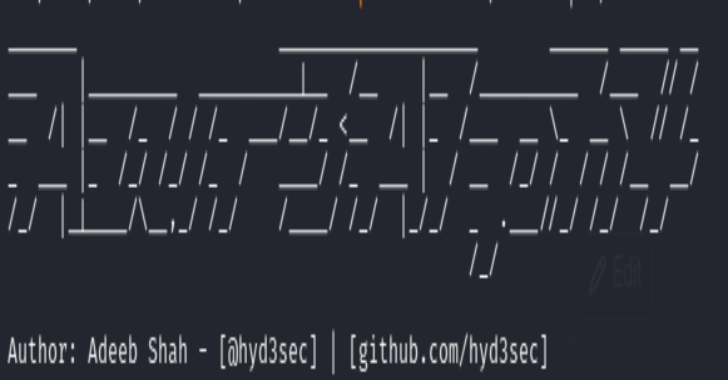A tool to find a company (target) infrastructure, files, and apps on the top cloud providers (Amazon, Google, Microsoft, DigitalOcean, Alibaba, Vultr, Linode).
The outcome is useful for bug bounty hunters, red teamers, and penetration testers alike.
Motivation
we are always thinking of something we can automate to make black-box security testing easier.
We discussed this idea of creating a multiple platform cloud brute-force hunter.mainly to find open buckets, apps, and databases hosted on the clouds and possibly app behind proxy servers.
Here is the list issues on previous approaches we tried to fix:
- separated wordlists
- lack of proper concurrency
- lack of supporting all major cloud providers
- require authentication or keys or cloud CLI access
- outdated endpoints and regions
- Incorrect file storage detection
- lack support for proxies (useful for bypassing region restrictions)
- lack support for user agent randomization (useful for bypassing rare restrictions)
- hard to use, poorly configured
Features
- Cloud detection (IPINFO API and Source Code)
- Supports all major providers
- Black-Box (unauthenticated)
- Fast (concurrent)
- Modular and easily customizable
- Cross Platform (windows, linux, mac)
- User-Agent Randomization
- Proxy Randomization (HTTP, Socks5)
Supported Cloud Providers
Microsoft:
- Storage
- Apps
Amazon:
- Storage
- Apps
Google:
- Storage
- Apps
DigitalOcean:
- storage
Vultr:
- Storage
Linode:
- Storage
Alibaba:
- Storage
Version
1.0.0
Usage
Just download the latest release for your operation system and follow the usage.
To make the best use of this tool, you have to understand how to configure it correctly.
When you open your downloaded version, there is a config folder, and there is a config.YAML file in there.
It looks like this
providers: ["amazon","alibaba","amazon","microsoft","digitalocean","linode","vultr","google"] # supported providers
environments: [ "test", "dev", "prod", "stage" , "staging" , "bak" ] # used for mutations
proxytype: "http" # socks5 / http
ipinfo: "" # IPINFO.io API KEYFor IPINFO API, you can register and get a free key at IPINFO, the environments used to generate URLs, such as test-keyword.target.region and test.keyword.target.region, etc.
We provided some wordlist out of the box, but it’s better to customize and minimize your wordlists (based on your recon) before executing the tool.
After setting up your API key, you are ready to use CloudBrute.
██████╗██╗ ██████╗ ██╗ ██╗██████╗ ██████╗ ██████╗ ██╗ ██╗████████╗███████╗
██╔════╝██║ ██╔═══██╗██║ ██║██╔══██╗██╔══██╗██╔══██╗██║ ██║╚══██╔══╝██╔════╝
██║ ██║ ██║ ██║██║ ██║██║ ██║██████╔╝██████╔╝██║ ██║ ██║ █████╗
██║ ██║ ██║ ██║██║ ██║██║ ██║██╔══██╗██╔══██╗██║ ██║ ██║ ██╔══╝
╚██████╗███████╗╚██████╔╝╚██████╔╝██████╔╝██████╔╝██║ ██║╚██████╔╝ ██║ ███████╗
╚═════╝╚══════╝ ╚═════╝ ╚═════╝ ╚═════╝ ╚═════╝ ╚═╝ ╚═╝ ╚═════╝ ╚═╝ ╚══════╝
V 1.0.7
usage: CloudBrute [-h|--help] -d|--domain "<value>" -k|--keyword "<value>"
-w|--wordlist "<value>" [-c|--cloud "<value>"] [-t|--threads
<integer>] [-T|--timeout <integer>] [-p|--proxy "<value>"]
[-a|--randomagent "<value>"] [-D|--debug] [-q|--quite]
[-m|--mode "<value>"] [-o|--output "<value>"]
[-C|--configFolder "<value>"]
Awesome Cloud Enumerator
Arguments:
-h --help Print help information
-d --domain domain
-k --keyword keyword used to generator urls
-w --wordlist path to wordlist
-c --cloud force a search, check config.yaml providers list
-t --threads number of threads. Default: 80
-T --timeout timeout per request in seconds. Default: 10
-p --proxy use proxy list
-a --randomagent user agent randomization
-D --debug show debug logs. Default: false
-q --quite suppress all output. Default: false
-m --mode storage or app. Default: storage
-o --output Output file. Default: out.txt
-C --configFolder Config path. Default: configFor more information click here.

















